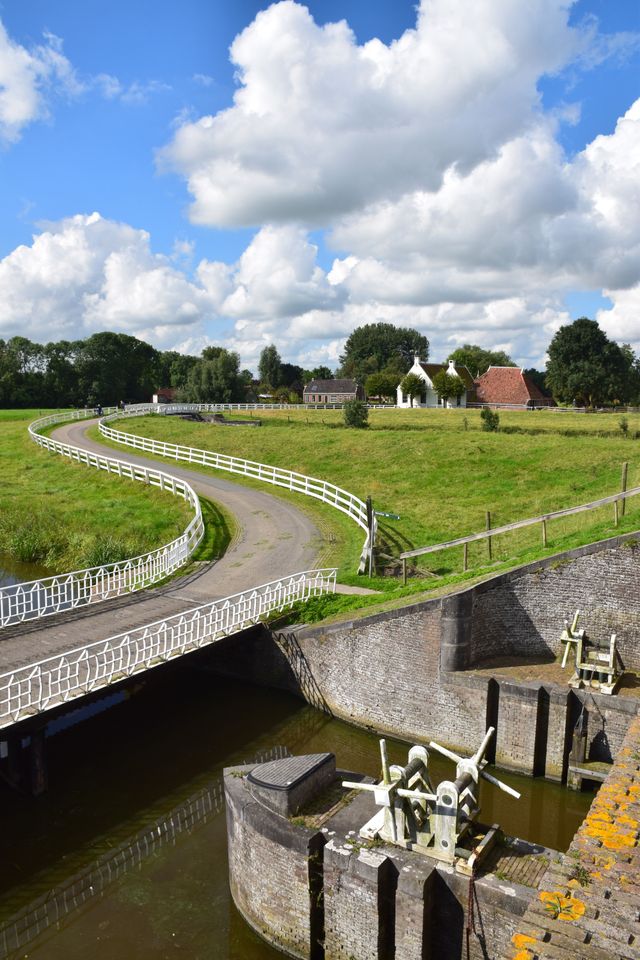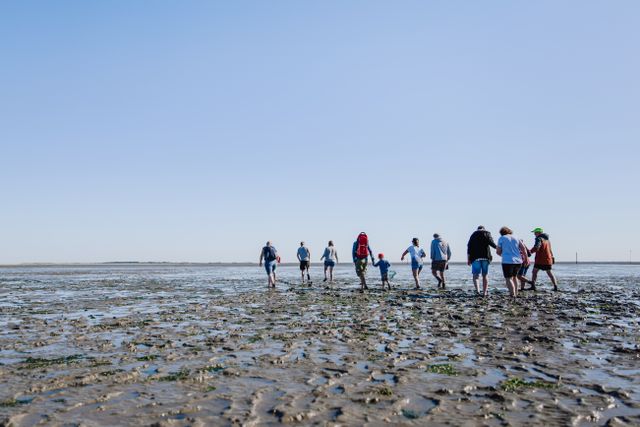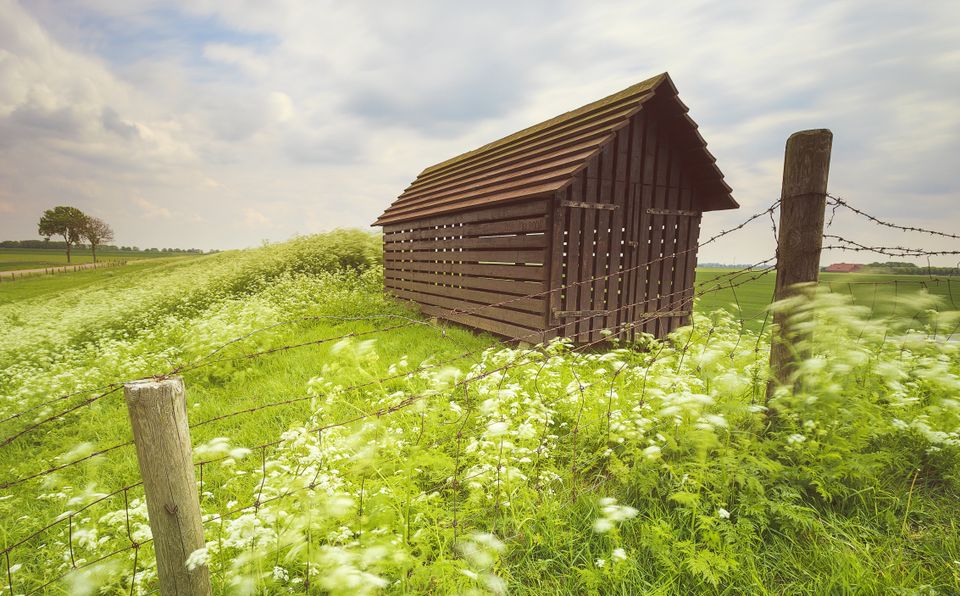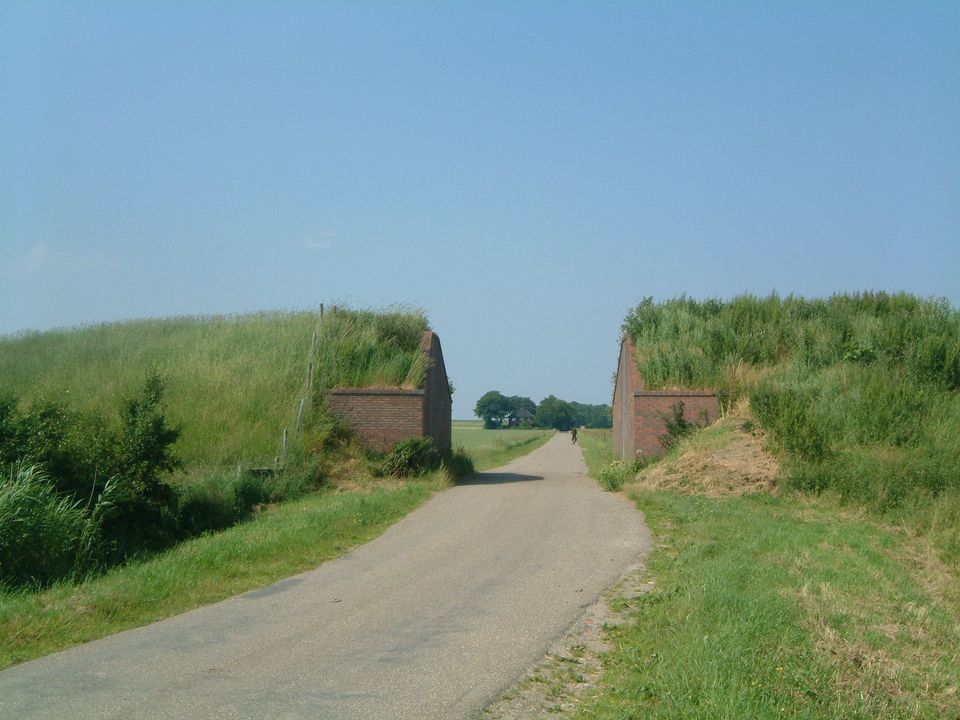The last polder
De Carel Coenraad polder, named after Commissioner to the King Carel Coenraad Geertsema, is the most easterly polder in the Netherlands. The last bit of land on the Dollard was reclaimed when a dike was built around the polder.
Heavy work
Work continued outside the dike until WWII but a new polder was never created. However a number of barracks with quite an exciting history did emerge. They were built for the mudflat workers in 1940. It was hard work on the edge between land and mudflat. The men dug and shovelled in the raw mudflats from early morning until the water rose. They ate standing up because there was nowhere to sit in the wet mud. They were only allowed to take cover in the barracks if it rained.
Ambonese forest
After the war work in the mudflats continued but the barracks were given a new function. They were used as an internment camp for members of the National Socialist Movement, under supervision of ex-police officer Verdam. He led a reign of terror until he was convicted for abuse in 1950 and the camp was closed due to neglect and abuse.
In 1953 the barracks were put to use again, this time to ‘house’ 311 Ambonese who were forced to flee Indonesia because they fought on the Dutch side in the fight for independence. They were supposed to stay just a few months and were therefore not allowed to integrate and were to have as little contact as possible with the Dutch.
Seven years later these residents still did not want to leave the Carel Coenraad polder and in 1960 the government began to insist. In December 1961 thirty police officers cleared the camp by force. The barracks were torn down and fast-growing poplar trees were planted. This strange element of landscape in the otherwise open polder is known colloquially as the ‘Ambonese forest’. It is worth a visit to this rather strange place, especially when you know the history behind it.
DISCOVER THE STORY WITH THIS ROUTE:
-
Water Heritage
Water Heritage

-
Wadden Coast Groningen
Wadden Coast Groningen


